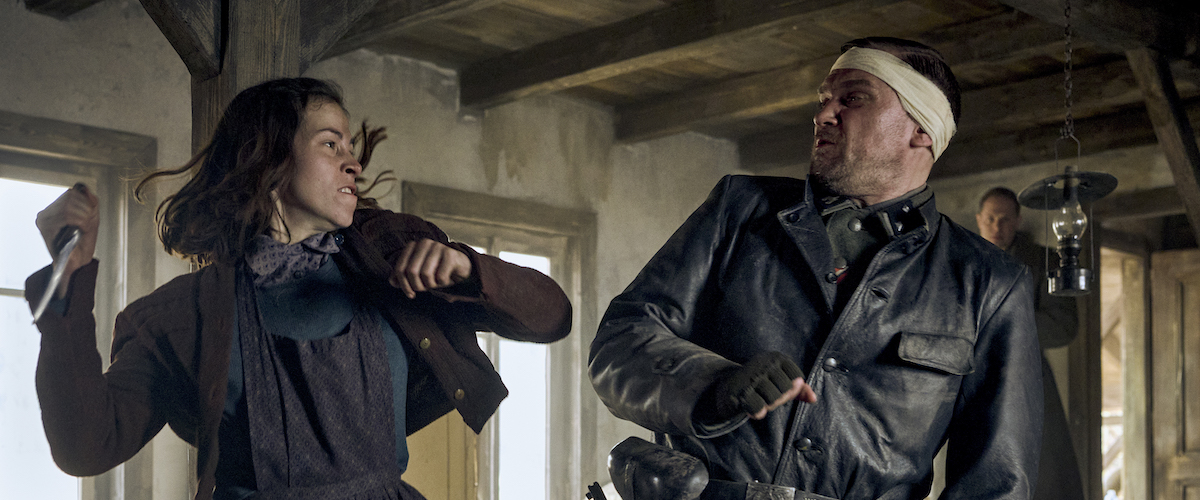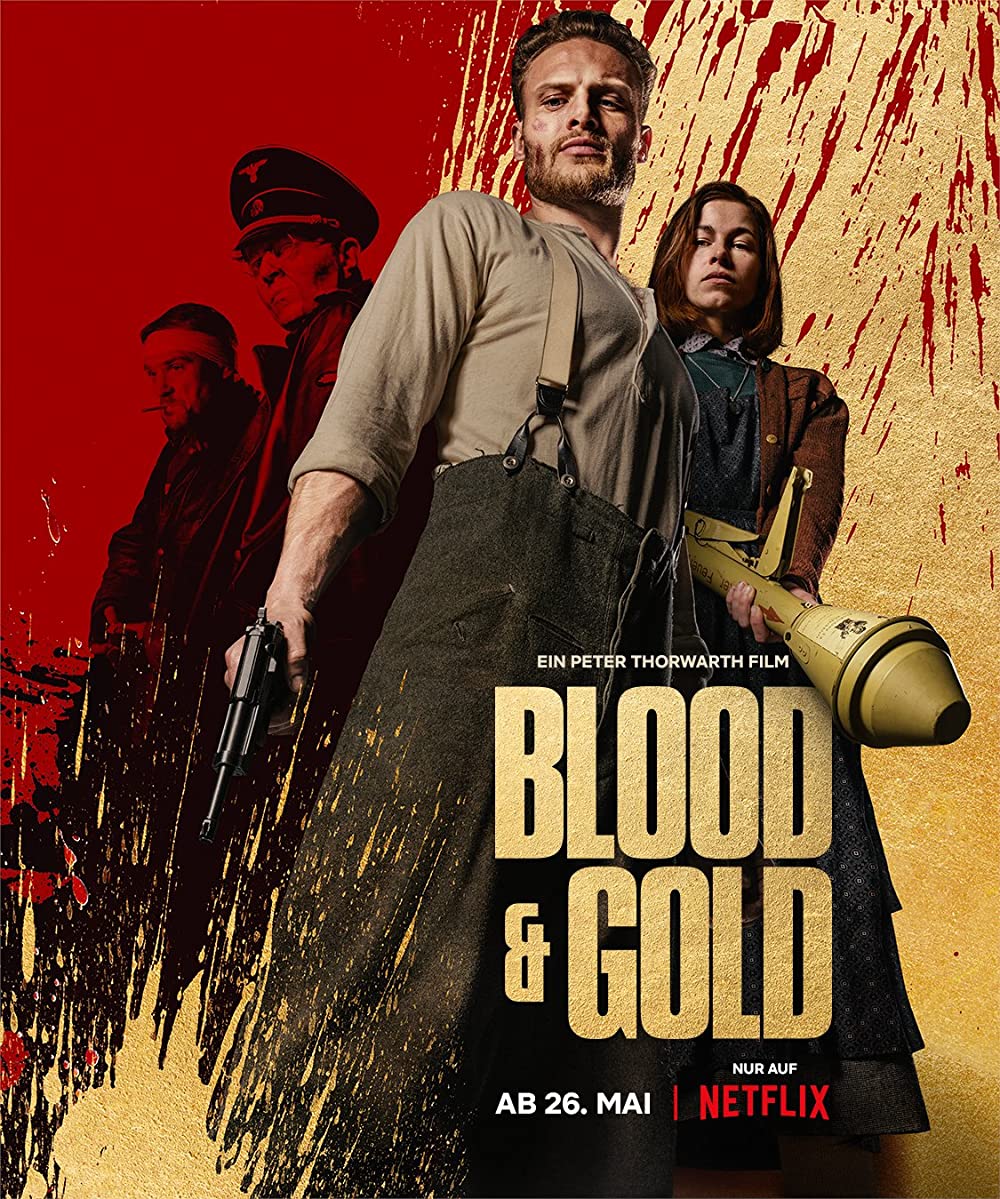The new WWII action-thriller “Blood & Gold” exists for one reason and one reason only—to present the grisly spectacle of hordes of Nazis being shot, stabbed, crushed, poisoned, burned, and blown up real good, all in ways so spectacularly gruesome and over-the-top that to describe them as “cartoonish” would be less a criticism and more a simple statement of fact. Hell, even “Where Eagles Dare”—the 1968 epic described by Robert Zemeckis as “the one where Clint Eastwood kills more guys than anybody else in movie history”—comes across as a model of subtlety by comparison. This unabashedly trashy project from director Peter Thorwarth has its moments of invention and excitement in the early going, but the constant spray of bullets and body parts proves numbing.
Set during the closing days of the war, as Germany is about to fall to the Allies, unwilling soldier Heinrich (Robert Masser) has deserted and is desperately trying to track down the young daughter whom he has only seen once and who is the sole surviving member of his family. Sadly, he is stopped by a squad of Nazis led by the sadistic von Starnfeld (Alexander Scheer), who wears a Phantom of the Opera-style mask to cover some grisly injuries to the left side of his face, and is hung by his neck from a nearby tree so that he can slowly strangle to death. Alas, these are Nazis with a schedule to keep, so no sooner do they have him dangling in the air, they take off without sticking around long enough to ensure he’s dead. This proves to be a good break for Heinrich because it allows him to be cut down in the nick of time by local woman Elsa (Marie Hacke) and taken back to the farm where she lives with her mentally challenged younger brother Paule (Simon Rupp).
As for those Nazis, they needed to get to the nearby village of Sonneberg, where they believe a fortune in gold lay somewhere in the ruins of the home belonging to the only Jewish family in town until they were burned out by their neighbors, including the duplicitous mayor (Stephan Grossman), during the early days of the war. Settling in for as long as it takes to recover the gold, von Starnfeld sends his men out to the local farms to commandeer provisions, and when they get to Elsa’s place, the soldiers add rape to their to-do list. This forces Heinrich out of hiding and leads to the first (but certainly not the last) big sequence in which he and Elsa take on their attackers and wreak bloody havoc while proving to be virtually unkillable. Afterward, Heinrich, Elsa, and Paule try to escape but find their paths again crossing with the Nazis as they also become caught up in the search for the gold, all under the ticking clock of the imminent arrival of American forces.
If this plot description gives you deja vu, it may be because it arrives only a few weeks after the release of “Sisu,” another action film set during the end of WWII featuring a seemingly unkillable soldier, a stash of gold, and hordes of Nazi soldiers who mostly exist only to show up for a few seconds before being killed off in some particularly nasty manner. “Blood & Gold” also bears the influence of Quentin Tarantino throughout in the form of its more audaciously grisly moments of darkly comedic violence, the occasionally ironic needle drops on the soundtrack, and a script by Stefan Barth that often plays like a hybrid of “Django Unchained” and “Inglourious Basterds.” (Even the trailer for the film makes it look like it was created specifically for the coming attractions segment of “Grindhouse.”)
Whether or not “Blood & Gold” succeeds will depend to a large degree on your expectations. If all you want is the pulpiest of fiction featuring lots of Nazis getting killed in many creatively grotesque ways, it’s a somewhat more agreeable prospect than “Sisu.” Thorwarth (whose previous film, “Blood Red Sky,” features the equally loopy premise of a terrorist hijacking of an in-flight airplane in which one of the passengers turns out to be a vampire) brings style and energy to the material. Massler makes for a stalwart and luckily resilient hero, and Hacke is even better as Elsa. However, the stuff that made the Tarantino films so great—the intriguing characters, the unexpected curlicues of the narrative, and the sparkling dialogue—is not exactly on hand here. “Blood & Gold” starts to run short on ideas and ingenuity at about the halfway point, making things drag during the final stretch when it devolves into just one grisly dispatch of a Nazi after another—proving, if nothing else, that there can indeed be too much of a good thing after a while.
“Love & Gold” is not a terrible bit of Nazisploitation, but it isn’t particularly interesting either. It has its moments, and I suspect that my dad, who rarely met a WWII film he didn’t like, probably would have gotten a kick out of it. However, I found it monotonous after a while. And unless you’re constantly thrilled and excited by an unceasing array of CGI-augmented bloodshed uninterrupted by plot, character, or genuine dramatic interest, I suspect you’ll feel the same.
Now playing on Netflix.




















